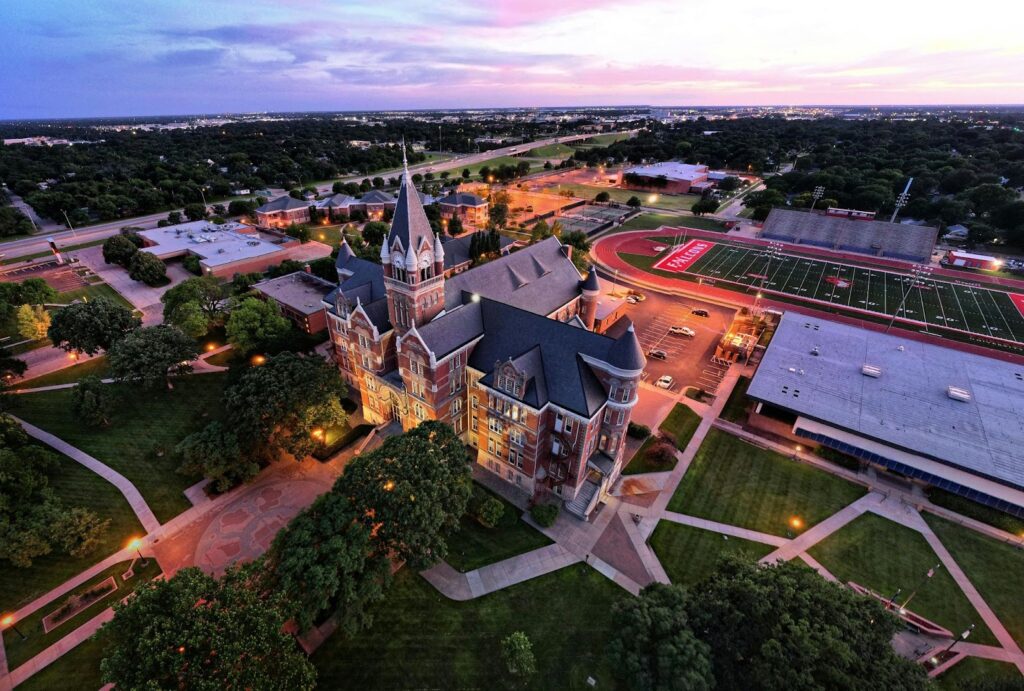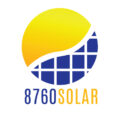
Kansas has some serious catching up to do in the solar sphere. Lagging behind its fellow states, Kansas currently ranks 46th for solar uptake. A mere 0.28% of its power comes from solar, which is enough for just over 18,000 homes.
The Kansas government isn’t motivated to switch to renewables and the state’s goal for renewable energy adoption is purely voluntary.
But that doesn’t mean it’s not worth switching to solar energy. On the contrary, solar power can give you energy independence and significantly reduce your energy bills. And while Kansas isn’t doing much to help its residents go solar, there are still some excellent US-wide incentives to benefit from.
Let’s take a closer look.
In a Nutshell
- Kansas has a 100% property tax exemption for solar installation.
- The two investor-owned utility companies must offer net metering and purchase energy at whole sales rates.
- Cooperative and municipal utility companies are exempt from offering net metering.
- The federal 30% solar tax credit is available to those who live in Kansas.
- Kansas farmers and agricultural businesses can apply for the REAP grant, which can cover up to 50% of the cost of a solar installation.
Kansas Solar Incentives

This is going to be a short section. Unfortunately, Kansas doesn’t offer any major incentives for going solar. It does, however, provide a property tax exemption on solar equipment.
Kansas Solar Property Tax Exemption
Installing solar energy increases the value of your property (by around 4.1% for residential properties), and with increased value comes increased property taxes.
Fortunately, solar is exempt from property tax, so if you install it, you won’t have to pay an increased rate for your solar equipment. Considering solar has a lifespan of over 25 years, that’s a massive amount you can save over time.
You don’t have to do anything to apply for the exemption. When your tax assessor checks your property for valuation purposes, they will ignore the solar installation’s value.
Net Metering in Kansas
Net metering in Kansas has a chequered history. In 2019, Kansas’ largest investor-owned utility Evergy was successful in persuading the Kansas Corporation Commission to place additional charges on folks who owned solar panels.
This incredibly unfair move was quickly shot down in early 2020 by the state’s Supreme Court, citing the fees as “discriminatory” and a violation of state law.
While solar owners can relax knowing they won’t face higher energy bills for going solar, there isn’t much to look forward to with the state’s net metering policy.
Net metering is where you sell your excess energy to the grid in exchange for reductions in your energy bills. Normal net metering mandates that customers can sell their excess kWh at electricity retail rates.
However, Kansas law dictates that both of the state’s investor-owned utility companies – Evergy and Empire District – can purchase excess energy at the “system average cost.” This basically translates to the wholesale electricity rate, which is much lower than retail rates.
As a ballpark figure, customers can expect to receive around 2.1 cents per kWh wholesale rate. In contrast, retail rates are typically around 11.3 cents per kWh.
Net metering can be applied as long as the following system sizes qualify:
- Residential: 15 kWh or less
- Commercial: 100 kWh or less
Credits are carried forward each month, but if any credits remain by March 31 of each year, they will expire and the “clock” is reset.
Electric cooperatives and municipal providers are not required to provide any kind of net metering to solar users, but many have elected to do so. Get in touch with your utility provider to find out if it has a net metering policy in place.
US-Wide Solar Incentives
There are some great things on offer that US citizens who go solar can take advantage of.
Federal Solar Tax Credit

/
The federal solar tax credit is a massive incentive that can significantly reduce the overall cost of your solar installation. It consists of a 30% tax credit that can be applied to your federal tax obligations.
Since the credit can be carried forward up to five years (and backdated up to three years), it’s likely that you will make full use of the amount. Additionally, this incentive has been extended until 2033, so if you plan to go solar in the next few years, you can still benefit.
To get the credit, you must:
- Ensure your solar installation was placed in service in 2022 or later, or that the construction phase will commence in 2033 or earlier
- Install your solar system on US soil
- Not lease the solar system to a tax-exempt entity
- Use new or limited previously used equipment
Beyond 2033, the tax credit will gradually phase out and reduced amounts will be on offer before it finishes entirely in 2035:
- 2033: 26% tax credit
- 2034: 22% tax credit
Bonus credits for commercial and business solar installations are also available. Click on each one to discover more:
Complete form 8962 and attach it to your tax return to benefit from this incentive.
USDA REAP Grant

With over 87% of the land suitable for farming, Kansas is a major agricultural state, so we had to include this amazing solar incentive.
The USDA’s Rural Energy for America Program (REAP) is designed specifically for farmers, agricultural producers, and rural businesses. It comes as part of the Inflation Reduction Act and aims to make agricultural businesses energy-independent.
The program consists of a grant (by application) that can cover up to 50% of the cost of your solar system. This is capped at $1 million, so it’s a healthy amount that you can receive.
Additionally, REAP can act as a guarantor for financing the remainder of the cost on loans for up to 75% of the solar system’s cost.
REAP is set to continue beyond September 2024 but its current terms and grant thresholds may change. To take advantage of REAP in its current form, the remaining application windows are:
- June 30, 2024
- September 30, 2024
In order to get the grant, you must meet a set of criteria.
To qualify, your business must:
- Conform to 13 CFR 121 small business size standards and be situated somewhere with a population of 50,000 or less
- Have no debt, judgment, debarments, or delinquent federal taxes outstanding
- Be classified as a partnership, a corporation, a sole proprietorship, a tribal business or corporation, a coop, or an electrical utility
- Have at least 50% of gross annual income generated from agricultural operations
It may reassure you to know that 100% of 8760 Solar’s clients who applied for the REAP grant have been successful. The application process can be lengthy, but our team will help you through it every step of the way.
To get the grant, you must complete and submit the application form.
Should I Get Solar if I Live in Kansas?

Kansas is a sunny state and most of its land is farmland, which makes it a great spot for solar energy.
We wish that the state’s government would get more on board with renewable energy and offer better incentives, but who knows what the future holds? As the US government sets ambitious green energy targets, all states will have to pull their socks up eventually.
In the meantime, solar energy is still a worthwhile investment, particularly for farmers who can get the REAP grant.
And if the Kansas net metering policy doesn’t tempt you, investing in solar storage batteries can be a great solution and give you full independence from the grid.
Our team at 8760 Solar can answer all of your queries, so we welcome you to get in touch. We specialize in providing solar solutions to agricultural and farming businesses, so whether you’re on the fence about solar or you have made the decision to go for it, we would love to hear from you.
Text “READY” to 719 470-0254 or get in touch via email: sales@8760solar.com and we’ll get back to you right away.
Frequently Asked Questions
Does Kansas Offer Solar Incentives?
Kansas offers a property tax exemption on solar equipment. Beyond this, there are no other state-wide solar incentives available.
Are Solar Panels Worth It in Kansas?
Solar panels are worth it in Kansas as they can significantly reduce your energy bills. The state is sunny, so you can be assured that your solar panels will work efficiently to produce plenty of energy for use.
What Is the Average Cost for Solar Panels in Kansas?
According to EnergySage, the average cost of solar panels in Kansas is $14,097 for a 5 kWh system. This is before any tax credits or incentives have been applied. Bear in mind that the cost of solar energy greatly depends on your energy needs, where the system will be installed, and what type of solar system you have.
Can You Sell Power Back to the Grid in Kansas?
Evergy and Empire District – the two investor-owned utility companies in Kansas – are required to purchase excess solar-generated energy at wholesale rates. Cooperative and municipal utilities are not required to offer any kind of net metering policy, though many do.
